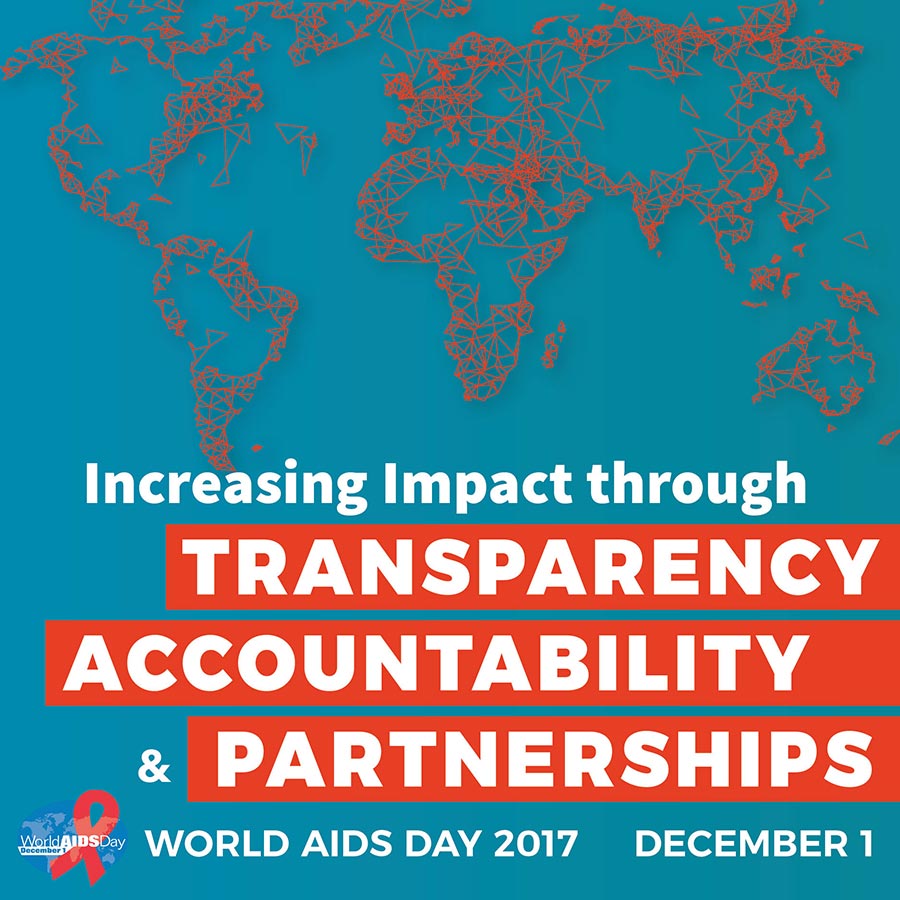Combatting HIV/AIDS: Nearly Four Decades of Progress
For the past 29 years, we’ve set aside today, World AIDS Day, to raise awareness of the AIDS pandemic caused by the spread of HIV infection, and to mourn as well as celebrate the lives of those who have died from this disease. While we observe 29 years of World AIDS Day, we have been combating the HIV epidemic for 36 years and have seen tremendous progress. This year, we saw great momentum build around the Undetectable=Untransmittable campaign, better known as U=U. This slogan was launched in 2016 by the Prevention Access Campaign to promote the proven scientific evidence that a person living with HIV who has an undetectable viral load cannot sexually transmit the virus to others. This campaign has been the quintessential embodiment of science being communicated in language that is easy to grasp. It gives communities hope, while also reducing stigma, bringing transparency to the forefront, and bridging gaps between communities and providers.
U=U has gained worldwide traction, as well as support from some of HIV’s most notable voices. At this year’s United States Conference on AIDS, we heard that “the science really does verify and validate U=U,” from Dr. Anthony S. Fauci, Director of the National Institute of Allergy and Infectious Disease, National Institutes of Health. In a Dear Colleague letter on National Gay Men’s HIV/AIDS Awareness Day, the Centers for Disease Control and Prevention confirmed that “people who take antiretroviral therapy daily as prescribed and achieve and maintain an undetectable viral load have effectively no risk of sexually transmitting the virus to an HIV-negative partner.” While this message is still new for some, though we’ve known the science for years, it has definitely brought new life and much needed attention to the critical importance of viral suppression, and the forward movement, impact, and work of the HIV community. Local health departments (LHDs) are critical partners in amplifying and sharing this message, and putting it into action.
A Local Health Department Approach
The U.S. theme for World AIDS Day 2017 is “Increasing Impact through Transparency, Accountability, and Partnerships and LHDs play a critical role in leveraging these factors to end the HIV epidemic. They are leaders, partners, and stakeholders in the communities most impacted.
Through the collaborative partnerships of public health and primary care, an even greater impact can be made on improving HIV outcomes in the communities hardest hit by this epidemic. NACCHO recently awarded funding to three LHDs for a project titled, “Improving HIV Outcomes through Collaboration: Supporting Partnership Development and Action Planning between Local Health Departments and Community Health Centers.” The jurisdictions awarded are Douglas County Health Department in Omaha, NE, Nassau County Department of Health in Mineola, NY, and the San Antonio Metropolitan Health District in Texas. This project brings together the LHD, a community health center (CHC), and community members from populations most impacted by HIV to plan and develop strategies to improve HIV outcomes in their communities. Including the voices of community members supports a transparent approach informed by those who need it most, while also mirroring accountability from the providers to the community and the community to the providers through strategic partnership. This work embodies the theme of World AIDS Day, and highlights important aspects of what it will take to end the HIV epidemi
Looking Ahead
The significant progress we’ve made over the past 36 years is absolutely commendable, but this is not a time to rest upon our laurels. We must continue to increase our impact until there are no new infections and every person diagnosed with HIV is linked to care and treatment, and ultimately virally suppressed. LHDs are uniquely positioned to achieve this goal and impact the overall health of communities.
World AIDS Day gives us a collective opportunity to celebrate our accomplishments, remember those who have lost their lives, raise the voices of those currently living with HIV, and refocus our attention on how we can ultimately end this epidemic. Through transparency, accountability, and partnership, we can end HIV.
To remain updated on World AIDS Day, follow HIV.gov and us the hashtag #WAD2017 on social media. And, if your health department is doing something to celebrate World AIDS Day, please share it with us @NACCHOalerts. To learn about NACCHO’s work to support LHD transparency, accountability, and partnerships to ending the HIV epidemic, visit our website.








